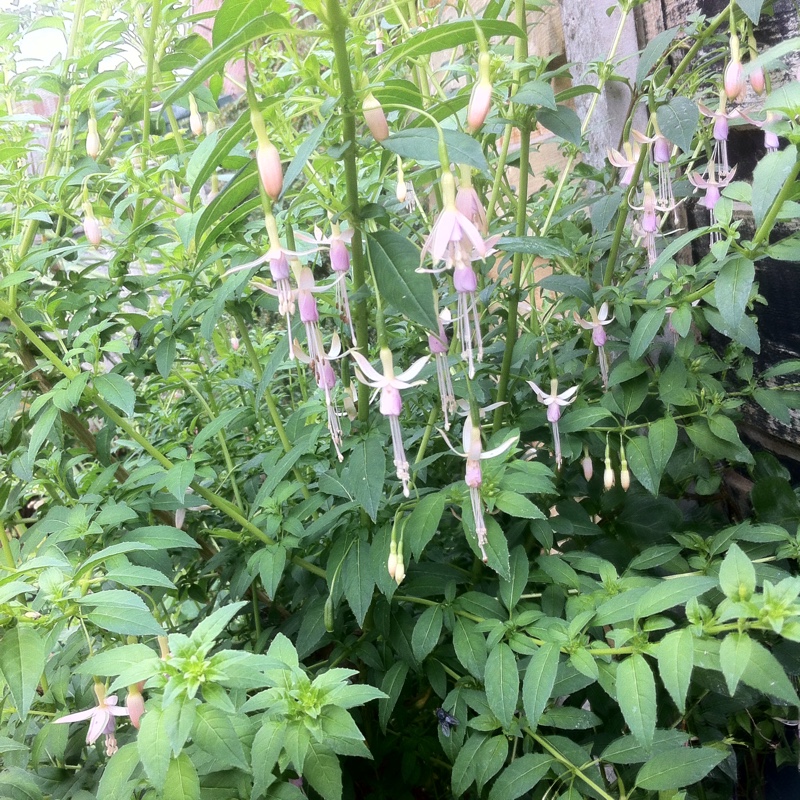
Fuchsia magellanica 'Molinae'
Hardy Pink Fuchsia 'Molinae'
Fuchsias are grown for their very attractive, usually pendent flowers that are borne continuously from summer to autumn. Hardy types tend to be the larger bush or hedging type, with simple single flowers, which as the name suggests will over winter well. 'Molinae' is a graceful multibranching shrub bearing small bright mid green lance shaped leaves. At the tips dainty pale pink ballerina like flowers hang in abundance from mid Spring to frost.
Contributed by @22pilgrim
-
Full sun to partial shade
-
Occasional watering
-
Full Frost Hardy: 5F (-15°C)
-
Free draining and fertile
Common name
Hardy Pink Fuchsia 'Molinae'
Latin name
Fuchsia magellanica 'Molinae'
type
Deciduous trees or shrubs
family
Onagraceae
ph
5.0 - 8.5 Acid - Neutral
Plant & bloom calendar
-
Best time to plant
full grown dimensions
 1.50 M
2.00 M
1.50 M
2.00 M
Fuchsia magellanica 'Molinae'
Fuchsias are grown for their very attractive, usually pendent flowers that are borne continuously from summer to autumn. Hardy types tend to be the larger bush or hedging type, with simple single flowers, which as the name suggests will over winter well. 'Molinae' is a graceful multibranching shrub bearing small bright mid green lance shaped leaves. At the tips dainty pale pink ballerina like flowers hang in abundance from mid Spring to frost.
Planting outdoors
From Mid Summer TO Early Autumn
Plant soft wood cuttings that have taken into the final growing positions.
Propagation by hard wood cuttings
From Late Summer TO Mid Autumn
Semi hard wood cuttings are taken from the current years growth from late summer to mid autumn the bottom of the cuttings is hard and soft on the top. With a sharp knife take a cutting of about 14cms, remove lowest leaves, dip end into rooting hormone, and place round the edge of a pot filled with a suitable compost, water well, they must remain moist till rooted, place under glass but in semi shade.
Planting outdoors in spring
From Late Spring TO Early Summer
Plant last years cuttings and container grown plants as soon as risk of frost past in early summer.















